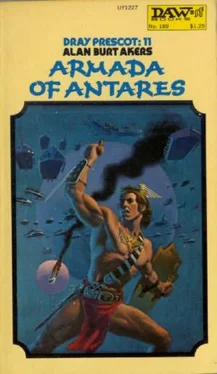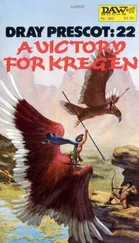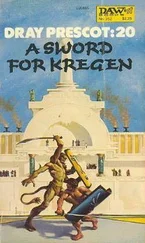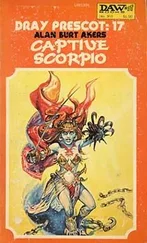Alan Akers - Armada of Antares
Здесь есть возможность читать онлайн «Alan Akers - Armada of Antares» весь текст электронной книги совершенно бесплатно (целиком полную версию без сокращений). В некоторых случаях можно слушать аудио, скачать через торрент в формате fb2 и присутствует краткое содержание. Жанр: Героическая фантастика, на английском языке. Описание произведения, (предисловие) а так же отзывы посетителей доступны на портале библиотеки ЛибКат.
- Название:Armada of Antares
- Автор:
- Жанр:
- Год:неизвестен
- ISBN:нет данных
- Рейтинг книги:4 / 5. Голосов: 1
-
Избранное:Добавить в избранное
- Отзывы:
-
Ваша оценка:
- 80
- 1
- 2
- 3
- 4
- 5
Armada of Antares: краткое содержание, описание и аннотация
Предлагаем к чтению аннотацию, описание, краткое содержание или предисловие (зависит от того, что написал сам автор книги «Armada of Antares»). Если вы не нашли необходимую информацию о книге — напишите в комментариях, мы постараемся отыскать её.
Armada of Antares — читать онлайн бесплатно полную книгу (весь текст) целиком
Ниже представлен текст книги, разбитый по страницам. Система сохранения места последней прочитанной страницы, позволяет с удобством читать онлайн бесплатно книгу «Armada of Antares», без необходимости каждый раз заново искать на чём Вы остановились. Поставьте закладку, и сможете в любой момент перейти на страницу, на которой закончили чтение.
Интервал:
Закладка:
The other event was altogether more strange. Strange and shuddery, to me, a plain sailor man of Earth who had become a warrior of Kregen.
Walking in our sweet secret garden among the flowers, I had felt an odd, chilling shiver in the air, most eerie, and had looked up. I was walking alone, for I needed to think about the sailing ships of the air, and I saw the figure of a man standing against the red brick wall with its freight of perfumed flowers. He was indistinct, vague and blurry, as though a mere reflection in a pool of water. As I looked up he disappeared. Disappeared. I started forward at once and the rapier flicked from the scabbard. How could he have reached the gate so rapidly? Besides, the door was locked and only Delia and I held the keys. Perhaps I was overwrought, strained far more than I realized, and the man had been a mere figment of my senses, tired and weary as I was. He had worn a long robe of black and green, with a wide cummerbund of red-gold. The vagueness of the vision — for it could have been nothing else -
prevented any clear definition of his face. I merely had the impression of great force and power. Troubled — I had no wish to lose my faculties at so important a moment in history, when the fate of empires hung balanced — I did not mention this occurrence to anyone. I had walked back to the long open terrace overlooking the Bay and Valkanium. This terrace supports that smaller, more private terrace higher up on thin white columns entwined with vines. It is a pleasant place for those of the fortress who care to stroll in moments of leisure. I saw San Evold Scavander in deep conversation with the Emperor’s personal wizard and, not caring for conversation at that time, turned to go another way up to my rooms.
“Prince!” And Scavander approached, his face betraying a mental struggle. “My Prince-”
“Yes, Evold?”
“San Deb-so-Parang has told me of something. . something you should hear.”
I think I guessed then, but my ugly old face betrayed nothing. “San,” I said to the Wizard of Loh, this Deb-so-Parang. I have said he was a pleasant old buffer; although he had failed to warn the Emperor of the plot of the third party, he was a useful man to have around the court.
“Prince. .” He hesitated.
“Go on.”
“Men say many things about the wizards, my Prince. Many are untrue, and many are true. By the Seven Arcades! I have no wish to alarm you at this time.” He licked his lips. Then: “I have a duty to the Emperor. .”
“And he is my father-in-law.”
“Quite so.” He took a breath. “I have felt an intrusion here in the fortress of Esser Rarioch. It was fleeting. It was, I cannot be mistaken, the visitation of a wizard in lupu.”
“Do you know the wizard?”
“No. There seem to be many new wizards these days. The older ones die. .”
“We’re all mortal, San.”
“I am not mistaken. A wizard was spying here.”
“If you feel this visitation again, San, you must tell me.”
We talked for a space then. But I knew what had happened. It was frighteningly obvious. That infamous Wizard of Loh, Phu-si-Yantong, had placed himself in lupu, that trancelike state in which the wizards may often see at a distance, and had paid me a visit. What he had seen I did not know. I wondered if a sword might not help to dispel the phantom.
Deb-so-Parang spread his hands. “Many of the wizards practice swordomancy. Some are very cunning with its use. I cannot do this myself, which is annoying.”
We talked about swordomancy, often called gladiomancy, and I gathered a further inkling of the powers of the Wizards of Loh, powers that, as I have indicated, may be seriously overvalued but powers which nevertheless remain frighteningly real.
I did not mention Phu-si-Yantong’s name to Deb-so-Parang.
I wondered just how skilled a swordomancer Phu-si-Yantong might be. So, as we sailed on through the bright air toward Jholaix and a battle for empire, I had much to think of beside the strategy and tactics of the coming engagement. As we neared the northern coast of Jholaix, which juts proudly forth from the main island of Pandahem, I thrust concern for Delia, dark thoughts of wizards and swordomancers, from my mind. Now every nerve, every sinew must be bent to the struggle, every thought for the victory we must win.
A swift-winged patrol of flutduins scouted us; quick, agile forms among the clouds. They must have seen our banners. Every ship carried her proud freight of colors. The yellow saltire on the red ground floated from every ship. Many of the vessels flew Old Superb, those vessels from the Valkan yards crewed by Valkans. Many of the other provinces of Vallia were represented, a brilliant plumage of color fluttering in the wind of our passage.
Against the very circumstance of that flutduin patrol I had caused to be flown in the bows of the lead ships the brilliant orange of Djanduin. The Emperor might twist his lips and make funny remarks about my being some sort of king of Djanduin, but he cocked his old eagle face up at those fliers, and I guessed what he was thinking.
Very soon Kytun Kholin Dom and Tom Tomor flew up to the armada. I greeted them with relief. Tom alighted with a sigh of gratitude; flying monstrous great birds of the air comes strangely to those unaccustomed to that mode of travel.
We talked there on the quarterdeck of that selfsame flier my men had taken in Hyrklana. It was now the Emperor’s flagship. He had named it Jen Drak for the mythic hero of Vallia. For myself I had chosen to fly in one of the new sailing vessels, and it had been named Vela. Before I left the flagship to go aboard my own ship we talked, there on that windy quarterdeck.
“We still resist, Majister,” said Tom, standing very straight before his Emperor. “Your arrival is barely in time.”
“Aye,” put in Kytun, very martial in his trappings, his harness and weapons about him. “Aye, Emperor. We fight for you because the King wishes. But you must take your share now.”
I interposed as smoothly as I could. My Djangs are not a mealy-mouthed bunch when it comes to talking to foreign royalty.
The plans were laid. In truth there was little else we could do but what we did. We put our trust in the Invisible Twins made manifest in the everlasting glory of Opaz, and we flew down to battle. The Hamalians had seen the imposing armada flying through the air toward them. I confess that as I took a small two-place flier from Jen Drak to Vela and saw that mass of ships spread out through the air my old heart gave a skip. The ships were stringing out, still under tow, to land their troops for the field battle. Then they rose again, sometimes somewhat jerkily as the tow lines came on, and soared up to take their battle stations.
If Kov Hangol, the Hamalese Pallan of the northern armies, thought we would enter action in long lines under tow, where he could swirl around us and cut us to pieces, he was the idiot Rees had named him. All our sails had been furled. Now, as the Hamalese sky force rose to challenge us, the orders were given.
The towropes were cast off. The agile sailors from both below and aloft cast loose the canvas and muscular heaves sheeted it home. The yards braced around. The canvas filled and the sails bulged proudly.
Very few nations of Kregen know anything of balloons and, I fear, many writers on this our Earth know nothing of balloons, either. One so often hears of balloons and airships being equipped with sails and acting like ships on the sea. This is not possible, of course, for no tacking is possible, and balloons and sails will all be swept away downwind. The two silver boxes which held us in the air, although they gave us no directional movement, did serve, as I have said, to grip the fabric of that force which upheld us. In my mid-nineteenth century understanding of the universe I thought of this in terms of the boxes latching onto the ether, so that when in line they acted as the keel of the vessel, dipped into the ether, affording us the necessary grip to tack windward. There was a little leeway made, of course, but these sailing vessels reacted better in the air than their counterparts in the sea below. With the sails sheeted home and the yards braced hard across the decks, the wind pushed us so that we skated along well up into the wind, like an orange pip squeezed against a window.
Читать дальшеИнтервал:
Закладка:
Похожие книги на «Armada of Antares»
Представляем Вашему вниманию похожие книги на «Armada of Antares» списком для выбора. Мы отобрали схожую по названию и смыслу литературу в надежде предоставить читателям больше вариантов отыскать новые, интересные, ещё непрочитанные произведения.
Обсуждение, отзывы о книге «Armada of Antares» и просто собственные мнения читателей. Оставьте ваши комментарии, напишите, что Вы думаете о произведении, его смысле или главных героях. Укажите что конкретно понравилось, а что нет, и почему Вы так считаете.












